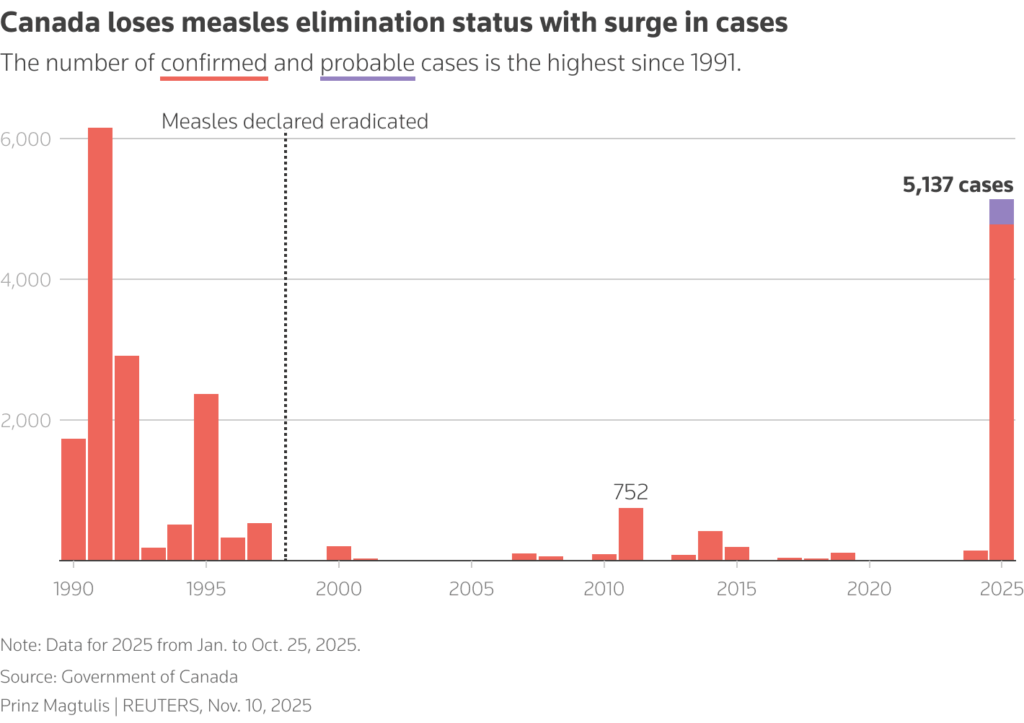
Introduction
In a troubling development for public health in Canada, the country has officially lost its measles elimination status, a significant setback for vaccination efforts. This status, granted by the World Health Organization (WHO) in 1998, underscored the effectiveness of the country’s immunization programs. However, a rise in measles cases due to decreased vaccination rates has led to the revocation of this status, heightening concerns about public health and the potential for outbreaks.
Recent Events and Statistics
As of 2023, Canada reported 43 confirmed cases of measles, compared to only a handful annually in previous years. The Canadian public health authorities noted that this resurgence is largely attributed to a decline in vaccination rates among children, partly fueled by misinformation about vaccine safety and a growing anti-vaccine sentiment. Health experts emphasize that to maintain herd immunity, at least 95% of the population needs to be vaccinated, but current rates are estimated to be below this threshold.
Public Health Implications
The loss of measles elimination status poses serious implications for Canadians. Measles, a highly contagious viral disease, can lead to severe complications, including pneumonia, encephalitis, and even death. With international travel increasing and the potential for imported cases, health officials worry that the absence of herd immunity could trigger significant outbreaks across the country.
Government and Health Initiatives
In response to this alarming trend, health officials have ramped up initiatives to boost vaccination coverage. The federal government, in collaboration with provincial health authorities, has launched awareness campaigns aimed at educating parents about the importance and safety of vaccines. Schools are also encouraged to maintain strict vaccination records and policies to ensure children are immunized before entering school.
Conclusion
The retraction of measles elimination status serves as a wake-up call for Canada. As more families choose not to vaccinate their children, the risk of outbreaks increases, threatening public health. It is imperative for health authorities, educators, and community leaders to work collaboratively, refuting misinformation and ensuring that every child receives their vaccinations. Without these efforts, Canada could face a future where preventable diseases like measles once again pose a major public health risk.